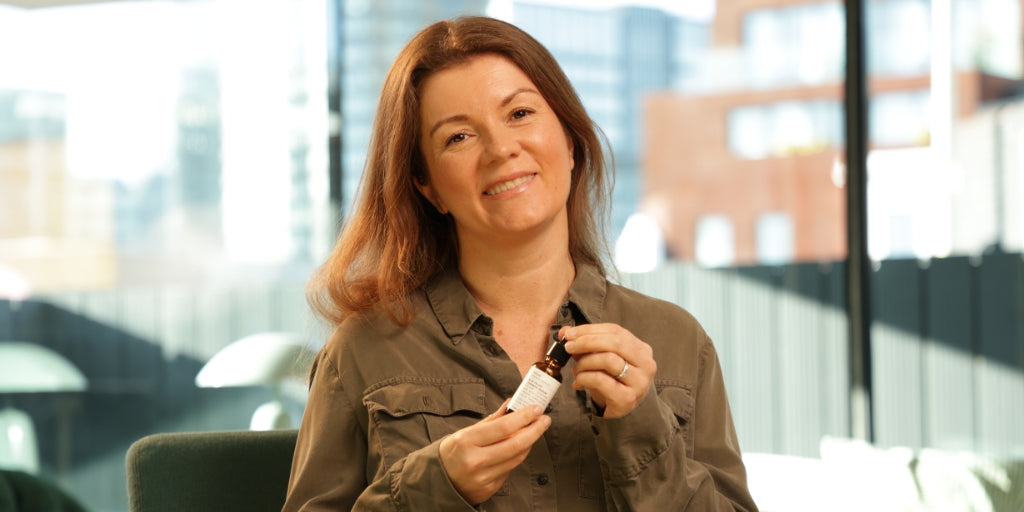How to build resilience in the face of adversity and grow an unshakable core of calm, strength and happiness.
When we feel overwhelmed or stressed, it can seem all too easy to give in to these negative emotions and lose faith in our ability to change our circumstances.
For many of us, this feeling has been particularly pronounced over the last few months, as we have come up against uncertainty and rapid change in our day-to-day lives. But did you know that when all else fails, we can still count on our mental resources to take back control, keep calm under pressure and restore inner peace?
This is where resilience comes in – our mental capacity to push forward through even the most stressful of situations, in order to pursue new and exciting opportunities. By regularly practising a few simple techniques, you can develop your mind’s powers to learn how to deal with adversity and, over time, grow the confidence required to follow your dreams.

In his book, Resilient, psychologist Dr Rick Hanson guides us through some highly effective tools for doing just this in our everyday lives.
To start with, if we are to demonstrate resilience in the face of life’s challenges, we must first accept the situation. However, this is easier said than done and it can be tempting to deny or fight our reality if we find it distressing. By acknowledging the situation – and how this makes you feel – you will find release and free up the mental space to find solutions. Not only does this acceptance apply to moments of crisis, but it can also be harnessed as a coping mechanism throughout your entire life - and it starts with self-compassion.
What is compassion?
Compassion may be defined as the feeling when a person is moved by the upset of another, and by the desire to relieve it. Most often, we feel compassion for other people; but many of us struggle to show the same compassion to ourselves.

To start learning the art of self-compassion, you need to create repeat experiences of it. Quite simply, we can only become more compassionate towards ourselves by practising it regularly. A good place to start is to try bringing past experiences of compassion to the front of your mind:
- Begin by remembering a time when you were helping someone else – perhaps a sick relative or a friend in need.
- Think about what it felt like and what kind of feelings were going through your mind at the time. Focus on these feelings and really experience them as fully as you can. Why did you feel this way? How did it make you respond?
- Now apply this same attitude to yourself. Get a sense of what it feels like to be your own friend and stay committed to it.
The more you practise this, the greater the benefits will be in the long-term as research has shown that self-compassion is not just something that makes you feel better in the moment; it also helps you build self-esteem and lowers your tendency to criticise yourself, boosting future resilience.
Mindfulness
Secondly, mindfulness is a great tool for helping you stay calm in times of stress, which in turn boosts resilience. For instance, when we feel angry or distressed, it is easy to let our thoughts run away with themselves, making for a calamitous cocktail of initial upset and unhelpful secondary reactions.

Through regulating your attention and remaining in the calm, responsive zone, you are much more likely to be able to conserve your energies, recharge and refuel. This will prevent you getting worked up over minor incidents or, should something more urgent occur, equips you with the necessary skills to adopt a more measured response.
Try this easy exercise: notice the times when you feel at ease and allow yourself to simply be – perhaps reflecting on your day before drifting off to sleep, or watching the world go by through a window. That sense of calm focus without judgement or conscious self-adjustment is what mindfulness feels like.
Willpower
Thirdly, to deal with life’s challenges you need a strong will. Willpower is about being tough and resourceful when faced with testing situations, and one of its key ingredients is agency. Agency can be thought of as the ability to enact change in the world rather than helplessly going with the flow. It means feeling like a cause instead of an effect and is the reason we are able to influence the direction of our lives rather than passively experiencing events.
So what can you do to strengthen your sense of agency? Start by deliberately looking for experiences in your life where you can make a choice or influence what happens. Make sure to focus on yourself as the active agent in the situation. This method is even more effective if it feels like a push, such as doing one extra repetition of an exercise at the gym. By identifying agency regularly, you are sure to feel empowered and ready to take on any challenge in no time!

Gratitude
Fourth, fostering gratitude helps us to build a strong inner core of calm and positivity. When we feel thankful, we feel good – and this is a great basis for drawing strength and resilience. One powerful way to foster gratitude is to make it a regular part of your day. For example, you could keep a gratitude journal to record all the things you are thankful for or write a letter to a person you really appreciate. In fact, these are the times that embracing small pleasures are the most rewarding, such as the taste of your favourite cake or the feeling of a soft, cosy pillow, because they help us to put things into perspective and remind us that life is full of both light and darkness.
Confidence
Fifth, confidence is key to resilience – and how confident we feel is determined by a combination of our mindset and those around us. This means that apart from surrounding yourself with positive people that make you feel secure, it is equally important to be kind to yourself and recognise that you are worthy of love and respect. To boost your confidence look for experiences in your present that make you feel cared for. By focusing on how this feels on a regular basis, you’ll get used to feeling like someone worth caring about – and this will grow your inner core of confidence.

Breathing
Sixth, just like mindfulness, breathing can help to calm our central nervous system, which makes us feel more relaxed and promotes resilience. As humans, we have a tendency to overestimate threats and underestimate our ability to handle them, which is where breathing can be a great tool for ‘tricking’ the body into stopping anxiety in its tracks. This is because by reversing the body’s stress response, we enable the parasympathetic nervous system to take over, which slows us down and sends relaxation signals to the brain. To aid relaxation, try breathing in for 3 counts and then slowly exhaling for 6.
Desire
Seventh, we can improve our resilience by desiring well. Desiring well is about learning to recognise the difference between things that you want and things that you like without desiring to have them. For example, when it comes to skincare fads you may be tempted by the latest face mask or cream, but in reality you know the one you have on your shelf will perform just as well - so you stop yourself from splurging. In other words, you’re desiring it but realise you just don’t need it. This is a great example of resilience, and it comes from the ability to manage your motivations and make reasoned judgements.

Of course, we’re only human and it’s natural to want things. However, the problem can come when we feel an insistent need to possess things we don’t need, often just to fill a gap. At the far end of the scale, this wanting can start to control us. At the other end, simply liking something without wanting it can be a far more pleasant experience, as this enables you to appreciate the things that you like more fully without fear that the pleasant experience will end, or feeling compelled to hold onto it.
By honing our ability to appreciate things without needing them, we develop our resilience and boost our general wellbeing.
Resilience
Finally, strengthening our resilience is also about holding onto our dreams, as it is resilience that gives us the courage to pursue these even in the face of adversity. Too often we give up on our dreams as we get older, either because we are influenced by other people’s opinions or we let our own fears of failure hold us back. But if you ignore or dismiss your dreams, you could be missing out on a much more fulfilling life.
To start overcoming your fears, choose something you really want and ask yourself: “What have I really been avoiding?” Ask yourself how likely it is that events will turn out as badly as you fear? How much satisfaction would you get from doing it anyway? More often than not you’ll find that we overestimate the risks and underestimate our ability to cope with the worst-case scenario. With your fears under control, your mind is free to think about the concrete steps you could take to what’s important to you.

And of course, don’t forget to mark your progress! No matter how small, it is so important to celebrate your achievements as you incorporate some of these resilience exercises into your day-to-day activities. The more experiences of success you build up, the more your brain will feel rewarded and that way, the whole task won’t seem so overwhelming. Whether it’s writing yourself little motivational notes or treating yourself to your favourite TV show, you should feel proud of yourself at every step along the way as you journey a little closer to inner happiness.
Actions You Can Take
There are many ways to feel happier and build up your resilience, including being kinder to yourself and practising mindfulness and gratitude in your everyday life. Breathing exercises are another great way to calm the body and mind, as they trigger your parasympathetic nervous system and send relaxation signals to the brain. When we feel calmer, we tend to make better decisions, and this gives us the strength to endure challenging situations. Another source of strength lies in developing a sense of agency, which can help us to regain control when we feel powerless. By boosting our self-esteem, all of these things help to build confidence, and this gives us the motivation to pursue our goals and dreams.
You May Also Like:





